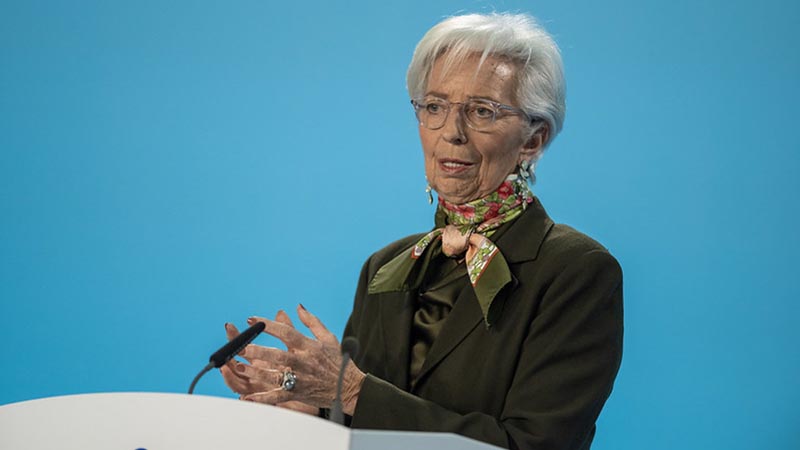A further interest rate hike from the European Central Bank this afternoon (14 September) could risk “plunging the European Union into a long recession”, according to some investment commentators, ahead of today’s monetary policy meeting.
Despite economists being undecided on what the Bank will decide to do, with its president Christine Lagarde stating in July that the Governing Council is no longer “ in the domain of forward guidance”, many investment professionals believe rates will stay where they are – at least for this month.
In the ECB’s last meeting at the end of July, interest rates were increased by 25 basis points in a bid to curb rising inflation. This marked the Bank’s ninth consecutive rate hike, having moved from a negative 0.5% to a positive 3.75% over the last year.
See also: Weekly outlook: ECB to make interest rates decision and Associated British Foods reports
Nigel Green, CEO and founder of Chase de Vere, pointed out that the European Commission has downgraded its 2023 growth prediction for the bloc from 1% in 2023, to 0.8%. Similarly, its 2024 growth prediction was revised downwards from 1.7% to 1.4%.
“It is reported that the ECB’s decision on whether to raise interest rates or not on Thursday is on a knife-edge. This is because the central bank is having to deal with stalling growth and persistently high inflation,” he explained.
“But we urge the ECB to refrain from raising interest rates considering the economic context and potential consequences.”
Green said Germany’s economy has also contracted by 0.4%, suggested the macroeconomic backdrop for Europe is less stable than many have anticipated.
“The largest economy in Europe is already struggling. Higher borrowing costs for businesses and consumers will further stifle investment and consumption, which are essential drivers of economic recovery,” he said.
“With Germany’s economy facing headwinds, it is crucial to maintain affordable-as-possible financing options to support businesses and individuals alike.
“Due to its size and influence, should the economic situation in Germany get worse due to further rate rises, there’s a real risk that the wider EU could be plunged into a long recession.”
Russell Silberston, investment strategist at Ninety One, said 55% of economists are expecting no change, while 45% are expecting a rate hike. Meanwhile, markets are priced for a 40% probability of a rise in rates, according to data from Bloomberg.
“On balance we expect no change as economic data has been weak and money supply, an indicator the German Bundesbank has watched closely in the past, turned negative in the latest release,” he said.
“Inflation surprised to the upside last month, but our interpretation of this is that the numbers are driven by the bounce is driven mostly by the bounce in commodity prices.
“If the economic outlook is as lacklustre as we believe, then core inflation will fall back. With official rates already back to their pre-GFC levels and the economy flirting with recession, monetary policy is already restrictive and the Governing Council can afford to be patient and hold fire this month.”
See also: Julian Howard: The interest rate bear threatening Goldilocks
Peter Goves, head of developed market debt sovereign research of MFS Investment Management, agrees the ECB will likely keep rates unchanged, but will also signal that it is not at the end of its tightening cycle, in order to “retain optionality”.
“Although further hikes cannot be ruled out given the data dependent reaction function, based on current information and our base line scenario, 3.75% could well be the terminal rate,” he reasoned. “In future meetings, there may be talk of what future quantitative tightening policy might look like.
“For now, the ECB on hold ought to put a lid on how high core euro rates can move and underperform cross market.”
Jason Davis, global rates portfolio manager at JP Morgan Asset Management, also believes the Bank will pause hiking, but use today’s meeting to suggest they could still hike in October if required. However, if the ECB does hike, he believes they will be more likely to “pause thereafter, keeping the impact on the terminal rate fairly limited”.
“The ECB’s three criteria for ending the hiking cycle are getting much closer to be met: first, there is clearly a very strong transmission mechanism with euro area lending volumes now in stagnation; second, the ECB’s inflation forecasts are likely to be at, or very close to, 2% at the end of their projection horizon and third, we have seen quite a lot of progress on underlying inflation,” Davis explained.
“Given the sharp slowing in growth and the ongoing progress on inflation, we currently have a preference for high quality European duration – across our portfolios – at these levels.”










